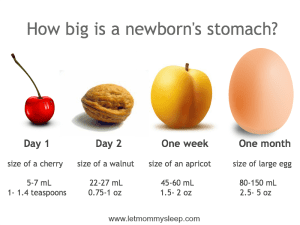As mentioned in my previous posts in this series, breastfeeding sabotage can happen at any time. It can begin in the womb, or during labor. Most often, it begins in immediate postpartum, right after the baby is born.
No matter where you have your baby, whether you have a home birth or hospital birth, the immediate postpartum period is important to get you on the right track.
Immediate postpartum is also when bad habits can be formed and small issues can become large issues, preventing you from having the breastfeeding relationship you desire.
If you have had a Cesarean Birth, several factors have can quickly take you off course. Knowing how to avoid breastfeeding sabotage immediately after the birth of your baby can be very important to your long term breastfeeding relationship. According to the “High Five” initiative and the Baby-Friendly Initiative, there are five primary practices to get breastfeeding off to the right start.
- Immediate and sustained skin to skin:
-Regulates baby’s body temperature, keeping them from being separated from you
-Prompts the release of oxytocin and prolactin, reducing stress and stimulating the production of colostrum
– Stabilized baby’s heart and breathing rate, keeping them with you
-Keeps baby’s blood sugar elevated, preventing the need for formula
-Colonizes baby with mother’s bacteria, promoting a healthy immune system and less likely that baby will have allergies, preventing another possible need for formula
-Baby instinctively searches for the breast, stimulating milk production and working together to learn how to breastfeed - Unless medically indicated, no food or drink for newborns other than breast milk:
- -Babies stomachs are very small at birth just a few drops of colostrum is all baby needs
-Babies have reserves from being in the womb and need very little until the milk comes in on day 3-4 of life
- Rooming-in 24 hours:
-Promotes on-demand feeding to stimulate milk production
-Makes skin to skin easier and more consistent
-Prevents missed feeding
-Promotes bonding - No artificial nipples, including pacifiers:
-Avoids confusion
-Gives baby plenty of time for comfort nursing, which stimulates milk production
-Promotes bonding
-Discourages a lazy latch
-Encourages learning only one skill at a time rather than learning two different ways of eating - Access to immediate breastfeeding support:
-Hospital staff trained in breastfeeding basics know what to look for and how to help with initial feeding
-Doulas trained in initial latch and breastfeeding support provide encouragement and know when more help is needed
-Lactation consultants in the hospital provide additional help if problems arise
-Access to local in-person and online support systems encourage troubleshooting and encouragement
Part5


One thought on “Breastfeeding Sabotage in Immediate Postpartum Part4”